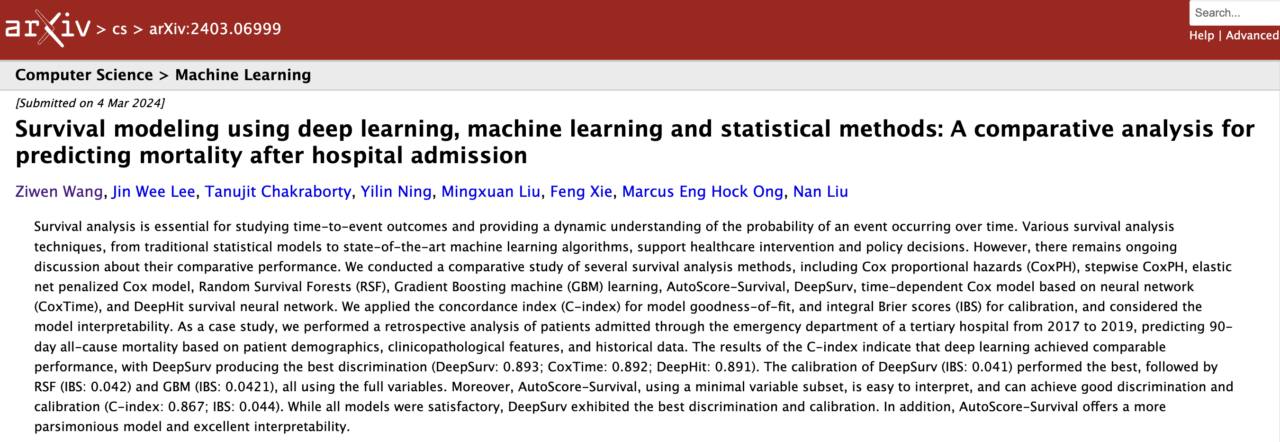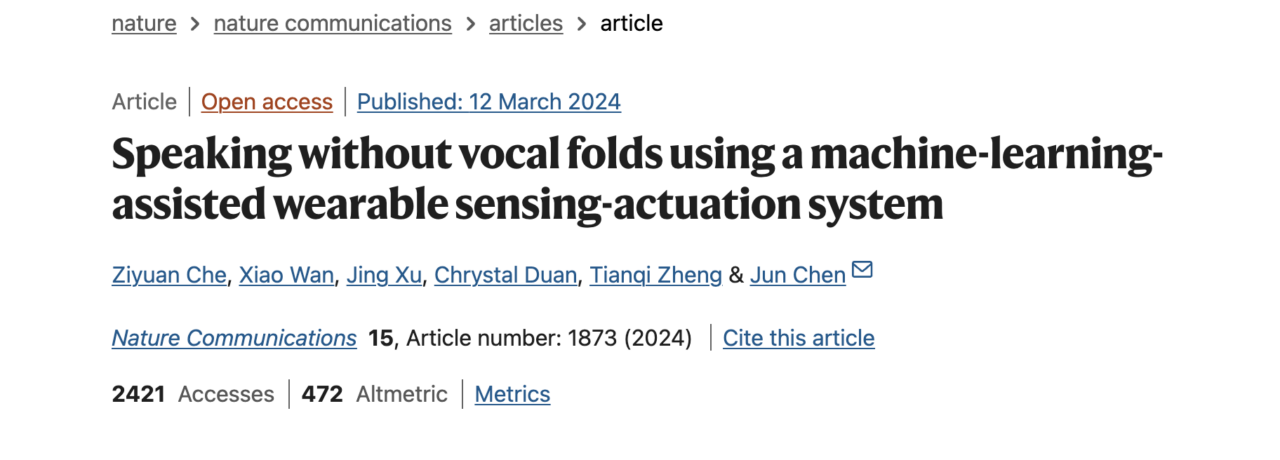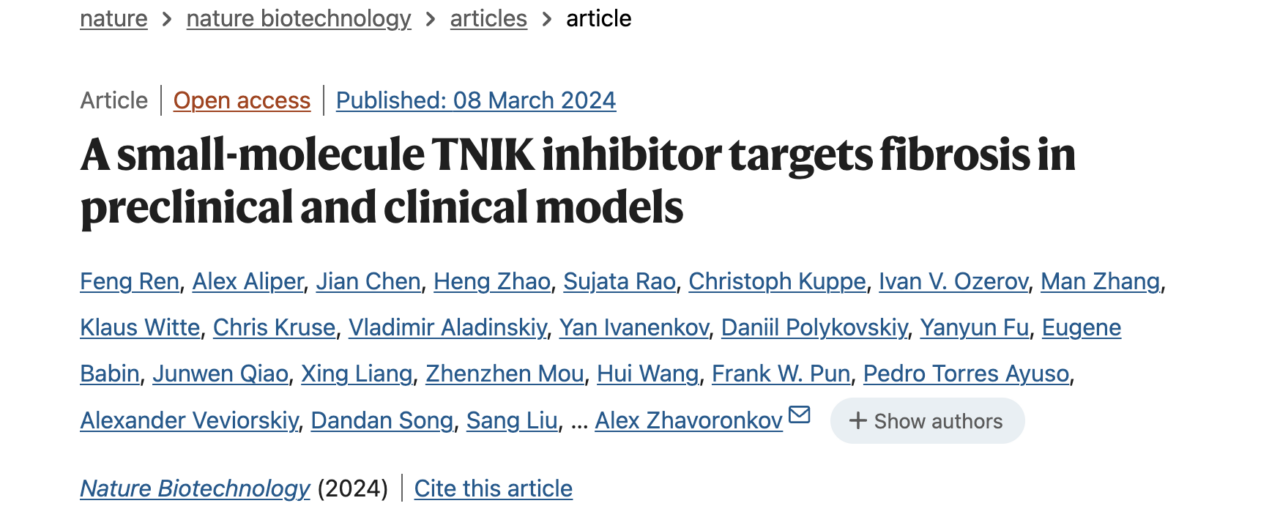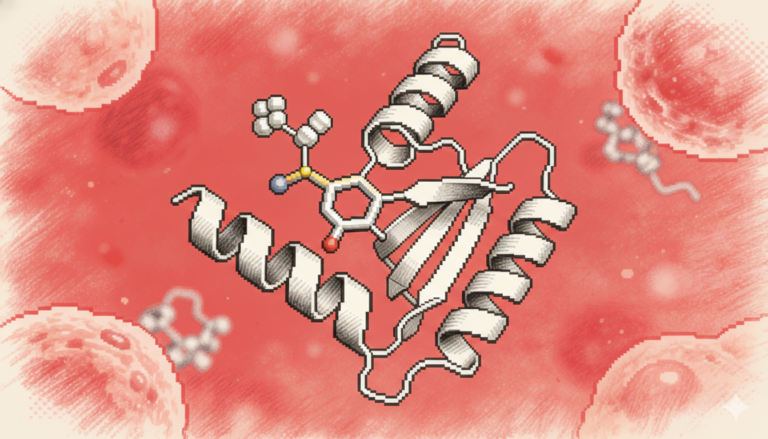Command Palette
Search for a command to run...
【ScienceAI Weekly】"AI Iron Man" Huang Renxun Talked About Nvidia's Scientific Research Layout at the GTC Conference; Overjet Received the Largest Investment in Dental AI History

New achievements, new developments, and new perspectives of AI for Science——
* NVIDIA: We have many strategic plans in the field of AI for Science
* Microsoft launches TRAIN in partnership with multiple medical institutions
* Overjet receives largest investment in dental AI history
* Legend Holdings and Zhipu AI reached cooperation in the fields of biotechnology and other fields
* Zephyr AI receives $111 million in Series A funding
* The Chinese Academy of Sciences Hong Kong Innovation Institute released a large medical and health AI model
* "Tushen Zhihe" received millions of yuan in angel round financing
*Qianqiu Intelligence received tens of millions of yuan in angel round financing
* Beijing: Actively promote the construction of artificial intelligence big models in the scientific research field
See below for details~
Company News
NVIDIA: We have many strategic plans in the field of AI for Science
Recently, NVIDIA announced at a media briefing at the GTC conference that it has many strategic plans in the field of AI for Science. Among them:
* Health care field, working with medical device manufacturers Medtronic and Johnson & Johnson to promote the large-scale application of AI in medical scenarios such as surgery; and working with the Danish Novo Nordisk Foundation to promote the application of generative AI in drug development, medical and other social science research.
* Life Sciences, providing more generative AI capabilities and integrating NVIDIA NIM into application scenarios such as biology, imaging, and genomics.
* Physics, fully enabling AI applications in the physical world through three platforms (DGX AI system platform, Omniverse platform for physics-based simulation, and robotic manufacturing platform Isaac).
* Earth Sciences, launched the Earth-2 platform for interactive, high-resolution climate and weather prediction, accelerating the speed and accuracy of weather forecasts.
In addition, Huang Renxun also introduced the BioNeMo basic model in his keynote speech in the early morning of the 19th. The first genome model it provided, DNABERT, is based on DNA sequences and can be used to predict the functions of specific regions of the genome, analyze the effects of gene mutations and variations, etc.
For more details, click here:A summary of Jen-Hsun Huang's GTC2024 keynote speech"
Microsoft launches TRAIN with multiple medical institutions
Recently, Microsoft has joined hands with a number of health care institutions to jointly create the Trustworthy & Responsible AI Network (TRAIN). Members of this network are committed to developing and using AI applications for the medical industry, establishing best practices for AI operations, helping to improve patient treatment outcomes and safety, and promoting patient trust in medical AI.
Overjet receives largest investment in dental AI history
Recently, Overjet announced that it has received $53.2 million in Series C financing, which is the largest financing in the dental AI field ever. This round of financing was led by March Capital, followed by General Catalyst, Insight Partners, E14 Fund, Crosslink Capital, etc. The funds raised will be used to provide AI tools for dental professionals.
It is reported that Overjet was founded in 2018 and focuses on dental artificial intelligence solutions. It uses deep learning and computer vision technology to provide advanced oral health data analysis for dental clinics, doctors, insurance companies and health maintenance organizations (HMOs).
Lenovo Holdings and Zhipu AI reach cooperation in biotechnology and other fields
Recently, Lenovo Holdings Co., Ltd. and Beijing Zhipu Huazhang Technology Co., Ltd. signed a strategic cooperation agreement. The two parties will cooperate in the fields of generative AI hardware and software and intelligent solutions. According to the agreement, Lenovo Holdings and Zhipu AI will carry out R&D cooperation in vertical large models in related fields such as intelligent manufacturing, financial technology, digital marketing and biotechnology.
Zephyr AI receives $111 million in Series A funding
On March 13, Zephyr AI announced that it had successfully raised US$111 million in Series A financing. This financing was jointly participated by Revolution Growth, Eli Lilly & Company, Jeff Skoll and EPIQ Capital Group. The funds raised will be used to expand the company's scientific research and business teams.
Zephyr AI, a medical technology company dedicated to fundamentally reshaping oncology and cardiometabolic diseases, is reportedly curating the world’s most comprehensive healthcare dataset and plans to fuse it with cutting-edge artificial intelligence algorithms to develop new products to advance medical research.
The Chinese Academy of Sciences Hong Kong Innovation Institute released a large medical and health AI model
CARES Copilot1.0, a large AI multimodal model in the medical field released by the Artificial Intelligence and Robotics Innovation Center of the Hong Kong Innovation Institute of the Chinese Academy of Sciences, can effectively support functions such as surgical phase recognition and instrument detection and counting. It has been undergoing field internal testing and optimization in different departments of many hospitals.
"Tushen Zhihe" received millions of yuan in angel round financing
Recently, Wuxi Tushen Zhihe Artificial Intelligence Technology Co., Ltd. and its subsidiary Shanghai Tushen Biotechnology Co., Ltd. (hereinafter referred to as "Tushen Zhihe") announced the completion of an angel round of financing of several million yuan. The investor is Chengmei Capital. The funds raised in this round will mainly be used for laboratory construction and team building.
Tushen Zhihe is a biotechnology company that designs and manufactures AI proteins, and is committed to providing solutions and new products for the development of new products in the field of synthetic biology. The company has developed a protein design platform called ProteinEngine that integrates a variety of self-developed AI models, which has been widely used in many bio-economic fields such as food, medicine, chemical industry, and medical beauty.
"Qianqiu Intelligence" received tens of millions of angel round financing
Recently, Qianqiu Intelligence announced that it has completed an angel round of financing worth tens of millions of yuan. This round of financing was led by Ruizi Venture Capital, and Zhonglan Technology served as its long-term financial advisor. The funds raised will be used for product research and development and market expansion.
It is reported that Qianqiu Intelligence was established in 2021. The company provides autistic children with a full-process digital therapy based on VR technology, including pre-diagnosis-rehabilitation training-post-training evaluation. The team has received support from Shanghai's top universities and many tertiary hospitals. It has completed preliminary verification and obtained relevant intellectual property rights, and is promoting relevant medical device registration licenses.
Policy Specifications
Beijing: Actively promote universities, research institutes, and emerging R&D institutions to build industrial artificial intelligence big models
Recently, the Beijing Municipal Bureau of Economics and Information Technology issued the "Beijing Manufacturing Digital Transformation Implementation Plan (2024-2026)", which proposed to create a demonstration of innovative applications of artificial intelligence, actively promote universities, research institutes, and emerging research and development institutions to build industrial artificial intelligence models, and promote the innovative application of artificial intelligence technology in vertical sub-sectors of the manufacturing industry.
For the complete plan, please see:
https://www.beijing.gov.cn/zhengce/gfxwj/202403/W020240304647107241384.pdf
Tools and Resources
Bert-loves-chemistry: Chemical modeling
Bert-loves-chemistry is a repository of HuggingFace models applied to chemical SMILES data, which can be used for drug design, chemical modeling, property prediction, etc.
Resource address:
https://github.com/seyonechithrananda/bert-loves-chemistry
LAMMPS: Largely Parallel Atomic and Molecular Simulator
Large-scale Atomic/Molecular Massively Parallel Simulator, molecular dynamics simulation, focuses on material modeling. It has potential in solid materials (metals, semiconductors) and soft matter (biomolecules, polymers) as well as coarse particles, and can be used for parallel particle simulations at atomic, mesoscopic or continuous scales.
Resource address:
https://github.com/lammps/lammps
Cameo: Assisted Biological Metabolic Engineering and Optimization
Cameo is a high-level Python library for strain design in metabolic engineering. The library provides a modular framework for simulation and strain design methods, primarily targeting developers who wish to develop new design algorithms and custom analysis workflows.
Resource address:
https://github.com/biosustain/cameo
Research results
AI-driven wind turbine bearing fault diagnosis
An AI-Driven Approach to Wind Turbine Bearing Fault Diagnosis from Acoustic Signals

*Source: arXiv
*Field: Energy and Environment
*Author: Shanxi Datong University
The researchers proposed a Convolutional LSTM model for classifying wind turbine generator bearing faults based on acoustic signals. The model showed high accuracy in the training phase, excellent generalization ability in the validation phase, and an overall accuracy of more than 99.5% in the testing phase.
Original address:
https://arxiv.org/abs/2403.09030
Survival Analysis Using Deep Learning, Machine Learning, and Statistical Methods
Survival modeling using deep learning, machine learning and statistical methods: A comparative analysis for predicting mortality after hospital admission

*Source: arXiv
* Field: Healthcare
*Author: Duke-NUS Medical School, Singapore
The researchers conducted a comparative study covering a variety of survival analysis methods, including Cox proportional hazards (CoxPH), stepwise CoxPH, Random Survival Forests (RSF), Gradient Boosting machine (GBM) learning, AutoScore-Survival, DeepSurv, etc. The Concordance index was then used to evaluate the model goodness of fit, and the Integral Brier scores were used to measure the calibration performance.
The research results show that DeepSurv performs best in terms of discrimination and calibration, and AutoScore-Survival performs particularly well due to its simple model structure and excellent interpretability.
Original address:
https://arxiv.org/abs/2403.06999
AI-assisted wearable sensor-actuated system enables vocalization without vocal cords
Speaking without vocal folds using a machine-learning-assisted wearable sensing-actuation system

*Source: Nature
* Field: Healthcare
*Author: University of California, Los Angeles
The researchers developed a self-powered wearable sensing-actuation system based on the principle of soft magnetic elasticity, which can achieve sound production without relying on vocal cord vibration. Specifically, by capturing the movement of external laryngeal muscles, these movement information is converted into electrical signals, and then these electrical signals are converted into speech signals with the help of a machine learning algorithm with an accuracy of up to 94.68%.
Original address:
https://www.nature.com/articles/s41467-024-45915-7
AI-assisted generation of TNIK inhibitors
A small-molecule TNIK inhibitor targets fibrosis in preclinical and clinical models

*Source: Nature
* Field: Healthcare
*Author: Insilico Medicine Shanghai Co., Ltd.
The researchers used AI to generate INS018_055, a small molecule TNIK inhibitor that exhibits desirable drug properties. The entire process, from target discovery to nomination of preclinical drug candidates, took about 18 months.
Original address:
https://www.nature.com/articles/s41587-024-02143-0
Upcoming Events
Seminar on the Application of AI Technology in Chemistry and Materials Science Research
The seminar on the application of AI technology in chemical and material science research will be held in Zhengzhou, Henan from April 23 to 25. Wang Chenhan, founder and CEO of OpenBayes Bayesian computing, Yu Long, chief scientist of the Institute of Chemistry of Henan Academy of Sciences, and Zheng Jiaxin, deputy dean of the School of New Materials of Shenzhen Institute of Shenzhen Studies of Peking University, will give in-depth speeches. The topics they share mainly focus on the scientific research intelligent computing cloud platform to accelerate the development of new materials, AI models to build smart brains in the medical field, and deep learning for the prediction and identification of material properties.
Registration link:
https://mp.weixin.qq.com/s/IHYKWddwgvAlua7Ckh1Kkg
2024 (2nd) Synthetic Biology and Biomedical Health Conference
The 2024 (Second) Synthetic Biology and Biomedical Health Conference, hosted by the Synthetic Biology Committee of the Shanghai Society of Bioengineering, will be held in the lecture hall on the second floor of Shanghai DaZeroBay Science and Technology Innovation Building from March 28 to 30, 2024.
This conference will bring together a group of experts and scholars in the field of synthetic biology from the fields of industry, academia, research, medicine and government to discuss the latest trends, technological innovation and industrial development in the industry. Among them, the third sub-forum will be themed "Artificial Intelligence Empowers Medical Synthetic Biology", and the speech topics include artificial intelligence analysis of medical multimodal data and general artificial intelligence for protein engineering based on pre-training.
Registration link:
https://mp.weixin.qq.com/s/-mQv7KXpLbnr5m-nh_r34Q
Event Review
Chalmers AI4Science Workshop
Recently, the monthly Chalmers AI4Science seminar organized by Simon Olsson and Rocío Mercado was held on the theme of "Protein exploration under computational microscopy - from machine learning to molecular simulation". The event was presented by Dr. Antonia Mey, a lecturer from the School of Chemistry at the University of Edinburgh, who shared how to build new molecules from X-ray crystallography fragment data using a generative machine learning model for SARS-CoV-2 protease.
Event Link:
https://psolsson.github.io/AI4ScienceSeminar
The above is all the content that "Science AI Weekly" wants to share~
If you have the latest research results, first-hand information about companies, etc. about AI for Science, please leave a message "Revelation".








